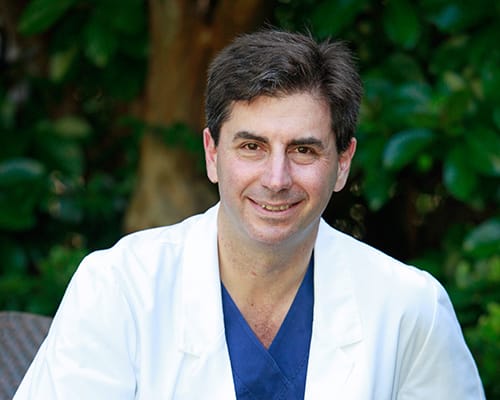With Dr. Phillip Brenner, who previously served as the head of the urology unit, St. Vincent’s Hospital is able to provide patients with access to one of the world’s most exceptional surgeons. Although he is quite skilled in every respect pertaining to his chosen medical field, Dr. Brenner is known to patients and peers alike as especially adept in addressing urological cancers, especially cancers of the prostate and cancers of the kidneys. This unique specialty is evident in the fact that Dr. Brenner has performed well in excess of 1,000 open radical prostatectomies in addition to more than 750 laparoscopic procedures.
A dedicated medical researcher, Dr. Brenner has authored or co-authored countless articles that have been published in medical journals that include “The Journal of Urology” and “Surgical Oncology.” Dr. Brenner’s research is supported by a joint effort between St. Vincent’s Hospital and the Garvan Institute, allowing the longtime urological surgeon to continue his important research on the nature of prostate and kidney cancer and the best methodologies available for treatment.
In keeping with his belief in the critical importance of ongoing research efforts to move the medical field forward, Dr. Brenner is also a staunch advocate for the development and implementation of new technologies designed to improve patient outcomes. Dr. Brenner often references the efficacy of the Da Vinci Robot in performing robotic radical prostatectomy and robotic-assisted laparoscopic partial nephrectomy.
In addition to holding the position of head of the urological unit at St. Vincent’s Hospital — not to mention his continued efforts in research — Dr. Brenner also holds a conjoint senior lectureship with the University of New South Wales. Dr. Brenner’s experience in the field of urology (more than 22 years) combined with his exceptional academic background (completed his fellowship at the Memorial Sloan-Kettering Cancer Center) make the urologist uniquely qualified for his position as the head of the urology unit at St. Vincent’s Hospital.
1. What was your best/favorite subject in school?
This may not be much of a surprise, but biology was easily my favorite subject throughout my years of schooling.
2. What was your first job?
My first job was actually a loosely organized collection of odd jobs from friends and family members in and around my neighborhood. I was quite young at the time, but I learned a great deal from that first work experience.
3. Where and how did you first get into the industry you currently work in?
The reason I pursued a medical degree and decided to become a surgeon had everything to do with the understanding that my career would revolve around opportunities to help people and their families.
4. How have those jobs prepared you for what you do now?
My first job taught me to value the work for itself and not for the compensation associated with it. This is part of what inspired me to pursue a career in which I would be able to help people in need.
5. Describe the best day of work you’ve ever had.
I hesitate to identify a single day that represents the “best ever,” especially since in my line of work we are often dealing with high stakes for the patient and their family. Every time we succeed in helping a patient overcome something as serious as cancer, it is a moment that is immediately thrust among those in the running for “best ever.”
6. How do you keep yourself motivated?
I believe in intrinsic motivation, but I will admit that the initial meetings with patients and their families can have a profoundly positive effect on motivation.
7. What kind of business ideas excite you most?
I love innovation and am excited by any idea that seeks to completely alter the way we see and do things. It is hard not to be excited by those kinds of ideas.
8. Have you ever tried any unorthodox techniques to attract attention to your business?
The only techniques I use — and I hesitate to even call them techniques — generate public awareness as an unintended product of my work as a researcher at the Garvan Institute, my conjoint senior lectureship at the University of New South Wales, and my role as head of the urology unit at St. Vincent’s.
9. What personal achievement are you most proud of?
I’m proud to have earned a fellowship at Memorial Sloan-Kettering Cancer Center in New York and am also proud of all the research I have performed and published over the years. Of course, I am immensely proud of the fact that so many patients have benefited so significantly from the help I was able to offer them.
10. What wisdom would you have liked to share with yourself when you first started out?
When I first started out, I asked a lot of questions of those with more experience than me. Even though I asked a lot of questions, I still held back a bit out of concern that I might be asking too many questions. If I could share any wisdom with myself, it would be to ask any question that came to mind as long as it was relevant and would contribute to a greater understanding of the medical field and urology in particular.

